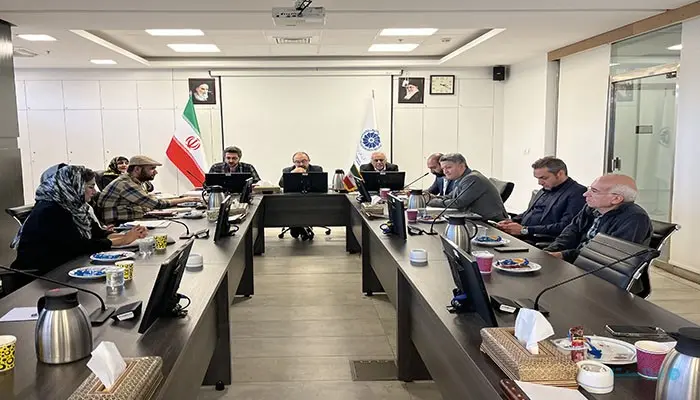Rasool Afshartabar, the representative of the Vice President for Science and Technology, said in the meeting “Examination of the draft road map for the knowledge-based economy” that the approach of this document is not to enlarge the government and governing institutions with the concept that they want to take over all the productions of the country.
According to the IDEA, The improvement of the higher education system and skills, the role of elites and specialized manpower in the development of the country, and the reduction of the country’s need for advanced technologies are the things that have been seen in this document.
According to the public relations report of the Assembly of Knowledge-Based Organizations of Iran, the meeting “Examination of the draft road map of knowledge-based economy” was held by the Assembly of Knowledge-Based Organizations of Iran and the Commission of New and Knowledge-Based Businesses at the Chamber of Commerce of Iran.
At the beginning of this meeting, the representative of the Vice President for Science and Technology, while explaining the road map for the knowledge-based economy and explaining the related clauses, said: In the first part of this draft, the expected achievements and effects of the knowledge-based economy were discussed, and quantitative indicators and goals were examined. has been Afshartabar continued: Improving the system of higher education and skills, creating a greater role for elites and specialized human resources in the development of the country, and reducing the country’s need for advanced technologies in the field of testing are among the things that have been seen in this document.
In the continuation of this meeting, Sadina Abai, the head of the Iranian Chamber of Commerce Commission, referring to the need to determine the position of the Chamber of Commerce in the said document, said: it should be clearly defined where the private sector and the organizations of the Chamber are located in this document. In compiling this document, we must pay attention to the fact that the Chamber of Commerce is placed in a consultative position and has a place in the statistics of issues and problems and solutions that are presented.
The Secretary General of the Assembly of Knowledge-Based Organizations of Iran, Sahar Bonakdarpour, referring to the country’s knowledge-based policies and laws, added: “It was never intended for government institutions to enter the country’s knowledge-based ecosystem.” Because this incident will cause corruption and rent in the country.
In response to Bonakdarpour’s statement, Afshartabar said: We must realize that industries such as cement, steel, etc. need to be knowledge-based. Of course, we understand that in order to increase productivity, we should not create a competitor for the private sector, and certainly in this field, the category of intellectual property is seen and addressed.
Maryam Tajabadi, the vice-chairman of the commission for new and knowledge-based businesses of the Iran Chamber, also pointed out that the format, percentage of participation and output should be clearly determined in the executive regulations of the mentioned road map. Tajabadi explained: We must specify that if we are going to direct capital We hope that the output of this investment will be a private sector company after a few years of formation.




No Comment! Be the first one.